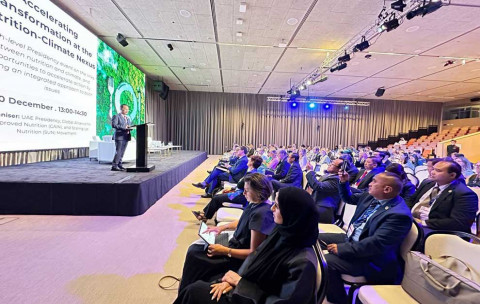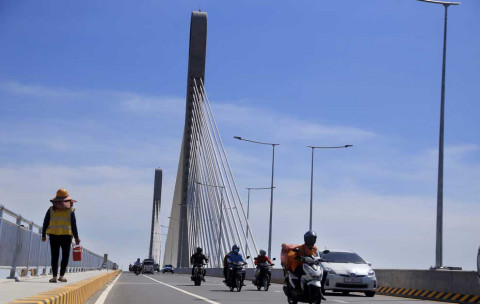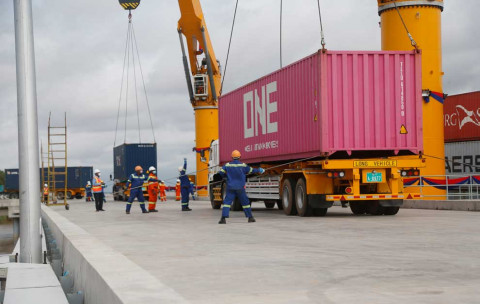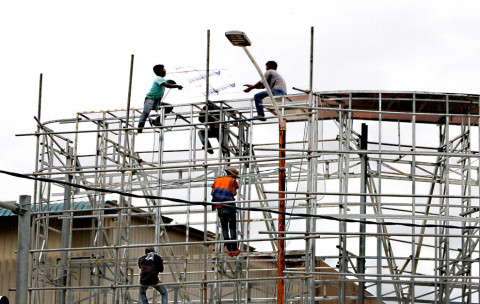
Environment minister Eang Sophalleth made a presentation on the sidelines of the COP28 and related summits in Dubai, the United Arab Emirates. MOE
Minister of Environment Eang Sophalleth outlined a number of mechanisms and strategies that will support Cambodia’s contribution to the prevention and reduction of climate change impacts, as he addressed a major UN conference.
The minister attended the 28th Conference of the Parties (COP28) of the UN Framework Convention on Climate Change (UNFCCC) and relevant summits, held in Dubai, the United Arab Emirates, from November 30 to December 12.
“Sophalleth’s remarks were a further sign of Cambodia’s new success on the international stage to strengthen and expand its excellent international relations and contribute to economic, social and political development too,” the ministry said in a December 13 social media post.
Sophalleth explained that the Kingdom is committed to seven key mechanisms and strategies, which were presented and discussed at COP28.
They include the abolition of a 700MW coal-fired power plant project, which will be replaced with an LPG-powered one. Cambodia is also developing a new reservoir which will produce 1,000 megawatts of clean electricity before 2028. Through the environment ministry, the government intends to increase renewable energy, mostly through solar, hydropower and wind, to 70 per cent.
“Cambodia is also cleaning up through a plastic reduction campaign – which has already seen the participation of more than 3 million Cambodians and continues to grow – as well as the Green Cambodia strategy, which will plant at least one million new trees ach year, increasing forest cover by 60 per cent by 2050,” said Sophalleth.
He highlighted an end to the construction of coal-fired power plants in the Kingdom, along with the building of hydropower dams across the Mekong River.
The minister also expressed Cambodia’s support and commitment to the Universal Declaration on Food Sustainability, Agriculture and Climate Change response activities, with a focus on priorities including improving the livelihoods of local communities, advocating for food security and nutritional well-being, expanding smart farming practices and low-carbon emissions strategies as key components of climate change adaptation and mitigation efforts.
Phloek Phyrom, coordinator of the Indigenous People Network in Mondulkiri province, described the ministry’s strategy as good, suggesting that it could provide an important orientated compass for propping up the lives of many people, especially the minority ethnic group communities that depend on natural resources.
“For these mechanisms and strategies to be successful, they will require participation from people from all walks of life. I would suggest that the government discuss them with the community, because most of the natural resource protection areas are protected by minority ethnic group communities, who are in turn vulnerable to the effects of climate change,” she said.
COP28 was attended by the leaders of 196 countries, as well as prominent scientists, representatives of the UN, development partners, and civil society organisations, as well as observer countries and journalists. A total of almost 70,000 people took part.
Cambodia and the other participating countries adopted a formal joint declaration on a sustainable food system, agricultural sustainability and resilience, and climate action.
The joint proclamation is in line with the government’s commitment to smart agriculture, reducing carbon emissions and sustainable development, to prevent and mitigate the effects of climate change more effectively.



















